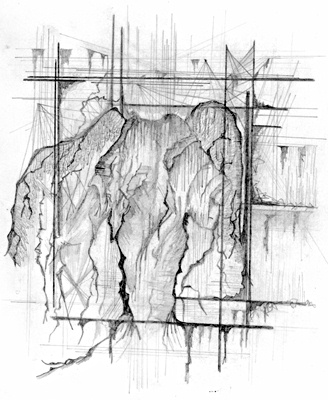All Nonfiction
- Bullying
- Books
- Academic
- Author Interviews
- Celebrity interviews
- College Articles
- College Essays
- Educator of the Year
- Heroes
- Interviews
- Memoir
- Personal Experience
- Sports
- Travel & Culture
All Opinions
- Bullying
- Current Events / Politics
- Discrimination
- Drugs / Alcohol / Smoking
- Entertainment / Celebrities
- Environment
- Love / Relationships
- Movies / Music / TV
- Pop Culture / Trends
- School / College
- Social Issues / Civics
- Spirituality / Religion
- Sports / Hobbies
All Hot Topics
- Bullying
- Community Service
- Environment
- Health
- Letters to the Editor
- Pride & Prejudice
- What Matters
- Back
Summer Guide
- Program Links
- Program Reviews
- Back
College Guide
- College Links
- College Reviews
- College Essays
- College Articles
- Back
The Virtuous Struggles of Mary Shelley’s Monster
Mary Shelley’s monster from Frankenstein has been an iconic symbol of grotesqueness for several hundred years. Yet his positive humanly traits and his struggles reveal he’s not as horrible as one may think. He struggled to gain knowledge, achieve good works, and ultimately to be accepted.
At first he knows very little, and survives off of his instincts, until he settles down near a cottage. Secretly observing a family he obtains knowledge proving his capability to learn and grow like a human being. On reflection the monster says “Of what a strange nature is knowledge! It clings to the mind, when it has once seized on it, like lichen on the rock. I wished sometimes to shake off all thought and feeling; but I learned that there was but one means to overcome the sensation of pain, and that was death-a state which I feared yet did not understand. I admired virtue and good feelings, and loved the gentle manners and amiable qualities of my cottagers; but I was shut out of intercourse with them, except through means which I obtained through stealth, when I was unseen and unknown, and which rather increased than satisfied the desire I had of becoming one of my fellows.” In his first endeavors to learn and grow his intentions were pure.
The monster achieved many good works toward the cottagers in secret, and wished ardently that he would be accepted by them when the time came. He would collect wood for their fire so that the man Felix wouldn’t have to, this gave him more time to fix up the cottage. He also stopped eating their food when he realized they were not wealthy. He proclaims, “To be great and virtuous man appeared the highest honor that can befall a sensitive being; to be base and vicious, as many on record have been, appeared the lowest degradation, a condition more abject than that of the blind mole or harmless worm. For a long time I could not conceive how one man could go forth to murder his fellow or even why there were laws and governments; but when I heard details of vice and bloodshed, my wonder ceased, and I turned away with disgust and loathing.” When he leaves the cottage Frankenstein saves a little girl from drowning.
Rejected by his own creator from the beginning, the monster is left all alone in the world the only one of his kind. When entering a town to find something to eat he is beaten by men on account of his hideousness. After hiding himself away for some time he decides to reveal himself to the cottagers. He tried to gain sympathy from the blind old man but time was against him. His son Felix came home with the women who fainted, then he too proceeded to beat the monster. Referring to Felix, the monster declares “I could have torn him limb from limb, as the lion rends the antelope. But my heart sunk within me as with bitter sickness, and I refrained. I saw him at the point of repeating his blow, when overcome by pain and anguish, I quitted the cottage and in the general tumult escaped unperceived to my hovel.” These conditions would be enough to cause anyone pain and sadness. Despite everything that had happened, he returned to the cottage only to learn that he would never see the cottagers again. This caused his hope that man could be accepting to fail. He travels away from the cottage and comes across a little girl who has fallen into a river and is drowning. He proceeds to save her life, and suffers another blow when he is not thanked but shot. The following weeks he was filled with pain. Afterwards he said, “My sufferings were augmented also by the oppressive sense of the injustice and ingratitude of their infliction. My daily vows rose for revenge-a deep and deadly revenge, such as would alone compensate for the outrages and anguish I had endured.”
Despite all his struggles to be knowledgeable, good, and accepted the rejection he suffered from human beings led him to become a murderous monster.

Similar Articles
JOIN THE DISCUSSION
This article has 0 comments.
